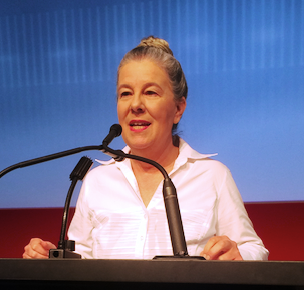- Home
- About Us
- The Team / Contact Us
- Books and Resources
- Privacy Policy
- Nonprofit Employer of Choice Award

 Most charity's revenue was down this year. That's why this is exactly the time for planned giving! Research by Dr. Russell James has found that people who make bequests to a charity give larger annual fund gifts and are more likely to make unrestricted gifts. So, a planned gift is really a gift that gives twice - once with immediate revenue and once in the future.
Most charity's revenue was down this year. That's why this is exactly the time for planned giving! Research by Dr. Russell James has found that people who make bequests to a charity give larger annual fund gifts and are more likely to make unrestricted gifts. So, a planned gift is really a gift that gives twice - once with immediate revenue and once in the future.
It can be hard to know where to start. Here is what I have learned over the years.
Fish where the fish are.
According to a white paper published by Blackbaud, 90% of planned gifts are bequests in Canada. So instead of trying to learn every single area of expertise, if you focus on bequests you will be able to confidently talk to the vast majority of donors. Best of all, the general public has some knowledge of bequests so it is not a super complicated area to understand for either you or the donor.
Bequests are for everyone.
The other great thing about bequests is that everyone needs a will. While other forms of planned giving require donors to consult with your financial advisor and it can be very difficult to offer appropriate advice. On the other hand, while bequests do require professional advice, it is easier to talk with donors about a will because it is relatively familiar to both the donor and you.
Arm yourself with back-up.
Bequest donors are some of the loveliest donors I have ever met. It is still wise to be sure that you have good back-up when you run into a problem that is new to you. Whether it is a donor with a difficult personal situation or someone with a complex financial situation, it is great to have some resources on hand. I have always found that participation in CAGP is particularly valuable for this. I have called colleagues for advice or help when I have hit a new situation.
Colleagues that I met through CAGP have been invaluable in giving me advice when I have had a donor whose financial situation is clearly exceeds my expertise. I have been amazed how even very senior people in the sector have been willing to take a phone call out of the blue and spend 10 minutes of time to arm me with the key questions to ask the donor and major issues to know.
S-l-o-w c-l-o-s-e give you time to grow.
It's great to work with fundraisers for advice and the donors are lovely. The other part of bequest-based giving is that these gifts are typically slow to close - often taking three to five years in my experience.
Getting started is easier than you may think.
Planned giving is a great area of fundraising. With the long time for gifts to close, you can start your bequest program now and, while you are building your relationships with your donors, you can take time to grow your expertise.
Ann Rosenfield, MBA, CFRE is the Hilborn Charity eNews Editor and a working fundraiser. She led the team that won an award from CAGP for best planned giving program in Canada. She can be reached at ann@hilborn.com
Cover photo by Danielle MacInnes on Unsplash